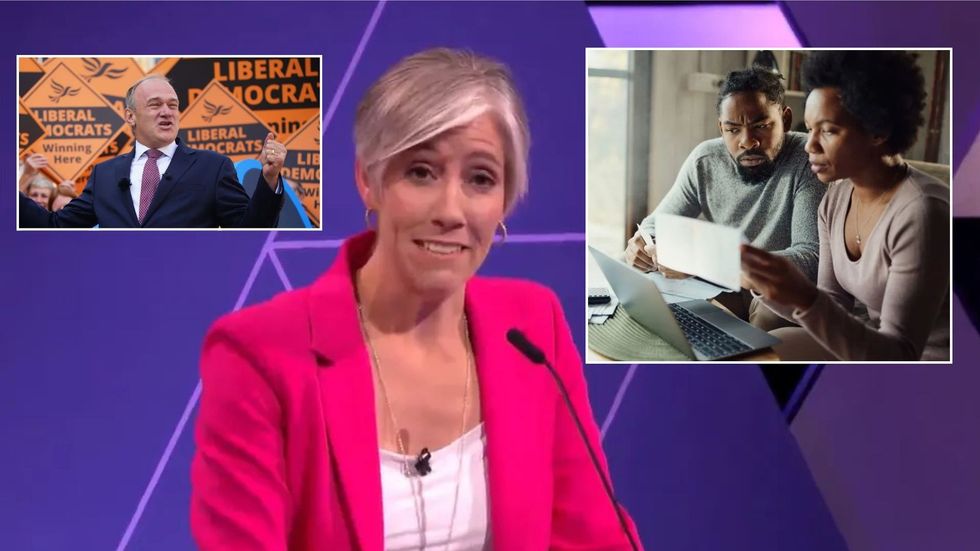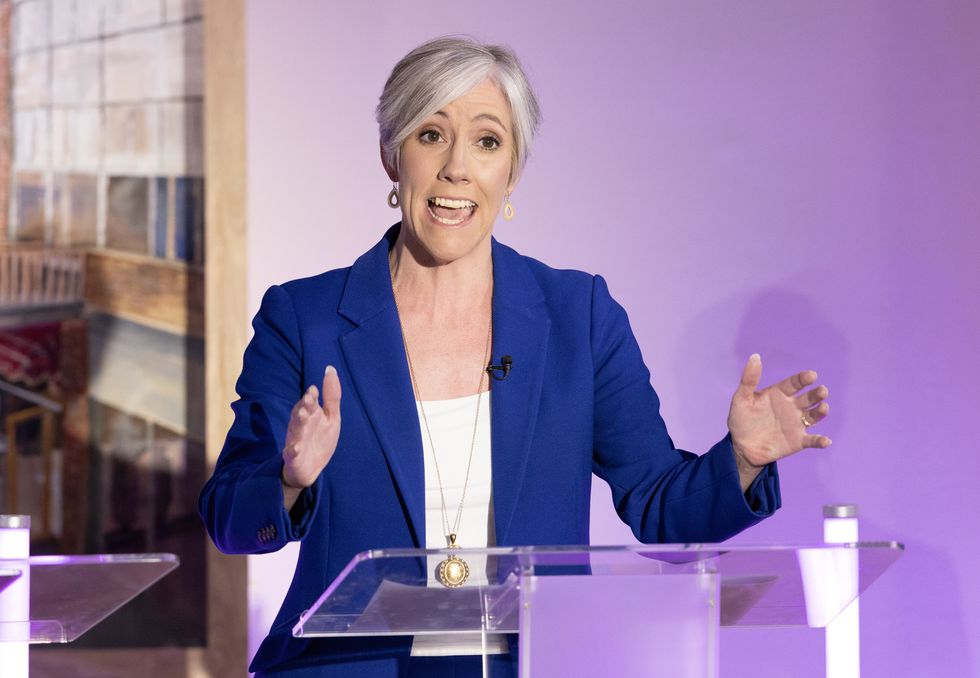The Liberal Democrats have unveiled plans for a windfall levy on major banks to finance a new lending programme aimed at reducing household energy costs.
Speaking at the party’s Bournemouth conference, deputy leader and treasury spokesperson Daisy Cooper announced the proposal for a time-limited tax targeting unexpected profits banks have accrued from quantitative easing policies.
The proposed levy would generate an average of £7billion annually through to the decade’s end, with £2billion earmarked as initial capital for establishing an energy security bank.
This institution would provide affordable loans enabling property owners and enterprises to invest in efficiency improvements such as solar installations and enhanced insulation.
Do you have a money story you’d like to share? Get in touch by emailing money@gbnews.uk.
“We taxpayers are now shelling out billions of pounds to the shareholders of the big banks simply because interest rates have remained so high for so long,” Ms Cooper said.
She added that banks “never expected to receive this windfall” and “never took on any risk” to reap it.
The energy security bank would extend loans of up to £20,000 to homeowners and £50,000 to small businesses and community energy groups.
These funds would enable borrowers to purchase energy-saving equipment including solar panels and insulation materials.

According to party estimates, such investments could reduce annual energy costs by approximately £500 for typical households.
The scheme would ultimately become self-sustaining through loan repayments, Ms Cooper explained to journalists.
The initiative could potentially unlock £10billion in affordable lending for energy efficiency improvements.
Beyond residential properties, the party envisions the bank financing solar panel installations across supermarket car parks.
Ms Cooper indicated she would urge Rachel Reeves to prolong the VAT exemption on energy-saving materials in the forthcoming Autumn Budget.
The proposal represents the party’s latest energy cost proposal, following their earlier advocacy for windfall taxes on oil and gas companies during the Ukraine conflict.

Ms Cooper drew parallels with the party’s previous stance on energy company profits, reminding conference attendees that the Liberal Democrats were “the first party to call for a windfall tax on the big oil and gas companies when they made profits they weren’t expecting due to Putin’s illegal full invasion of Ukraine.”
She argued that financial institutions are now benefiting from similar unexpected gains “due to an unintended consequence of the quantitative easing programme that was more than a decade ago.”
The deputy leader stressed that these profits arose without banks assuming additional risk or anticipating such returns.
When questioned about public appetite for the loan scheme, Ms Cooper expressed confidence in demand.
The proposed tax would specifically target interest payments banks received through quantitative easing, without requiring Bank of England intervention.
The announcement forms part of the Liberal Democrats’ broader economic platform at their autumn conference, where party leader Sir Ed Davey has also targeted tech billionaire Elon Musk over online safety concerns.
The energy security bank proposal reflects the party’s positioning on cost-of-living issues ahead of potential electoral contests.
“People want to take this action. I think that when I hear from households, from families, from small businesses, they are hungry to take action on this issue. They just need the means to be able to do so,” she told Sky News.
LATEST DEVELOPMENTS:
- Patriotic Britons ‘could be DEBANKED just for raising Union Jack’ – ‘It’s terrible!’
- DWP warning as Britons on 6 benefits could have money taken from accounts – check who’s affected
- Inheritance tax: Families issued wake-up call as they risk ‘sleepwalking into substantial bills’

The scheme would enable households to achieve permanent reductions in energy expenditure whilst enhancing Britain’s energy independence.
Ms Cooper emphasised that many constituents express eagerness to improve their properties’ efficiency but lack the financial means to do so.
The party maintains that the windfall tax would not impact banks’ core operations, as it targets only unexpected gains from historical monetary policy decisions.
The Liberal Democrats estimate the energy bank could facilitate widespread adoption of renewable technologies across residential and commercial properties.
Our Standards:
The GB News Editorial Charter







Follow